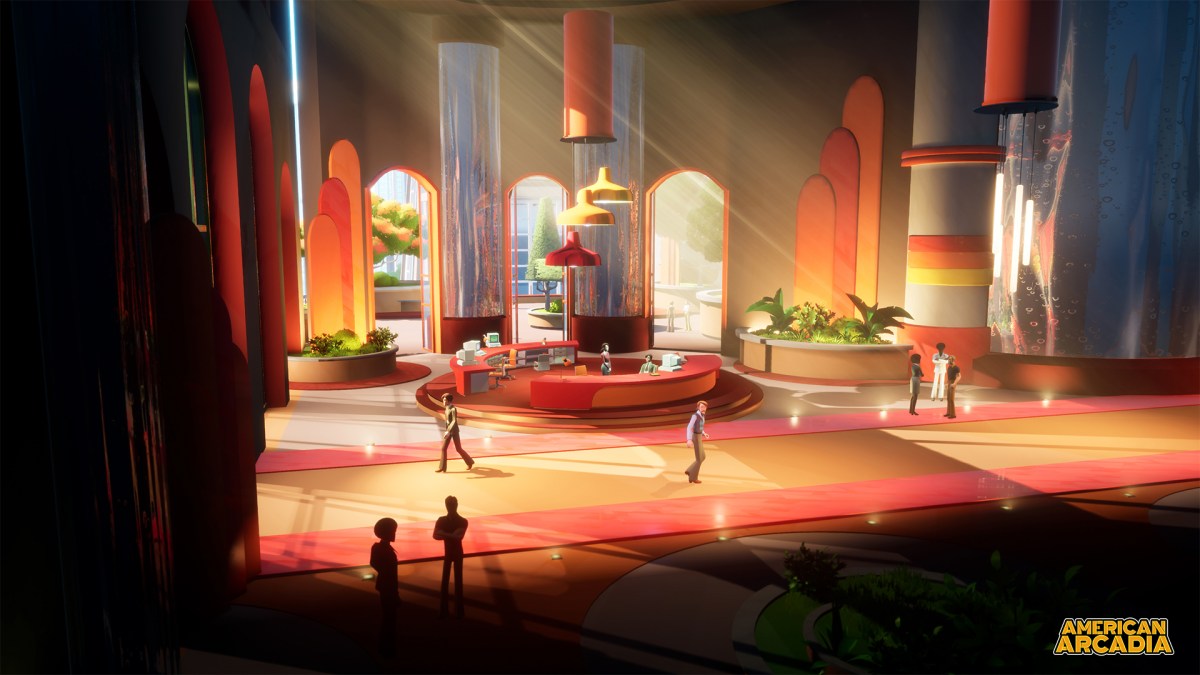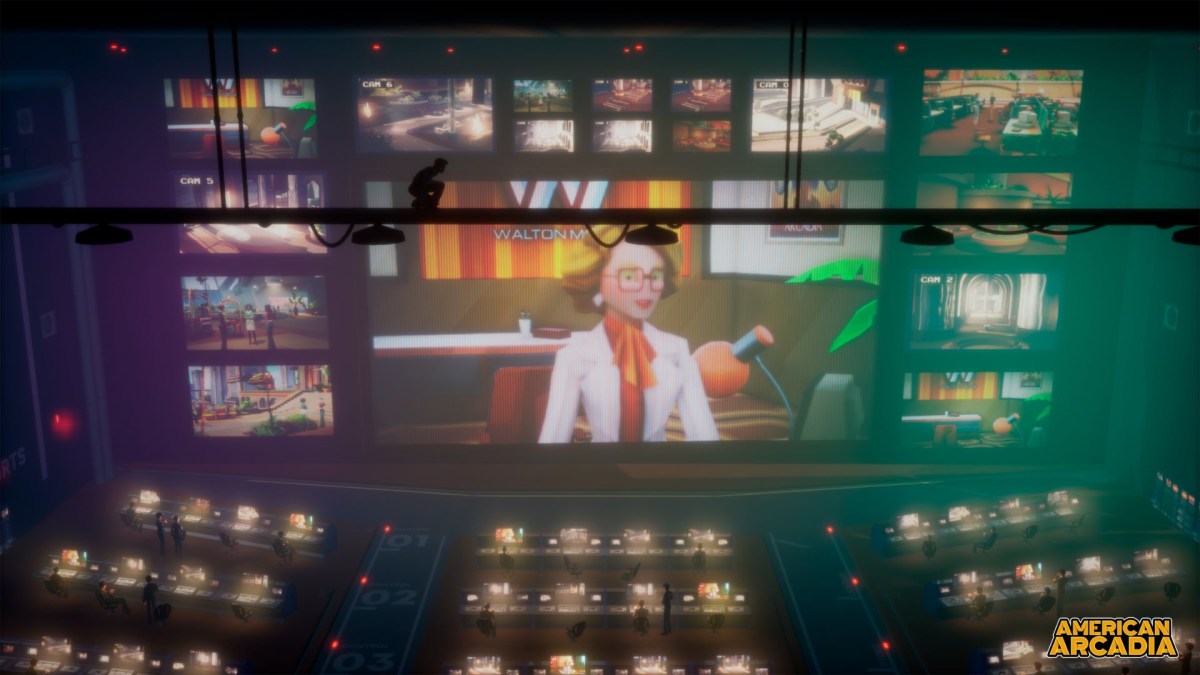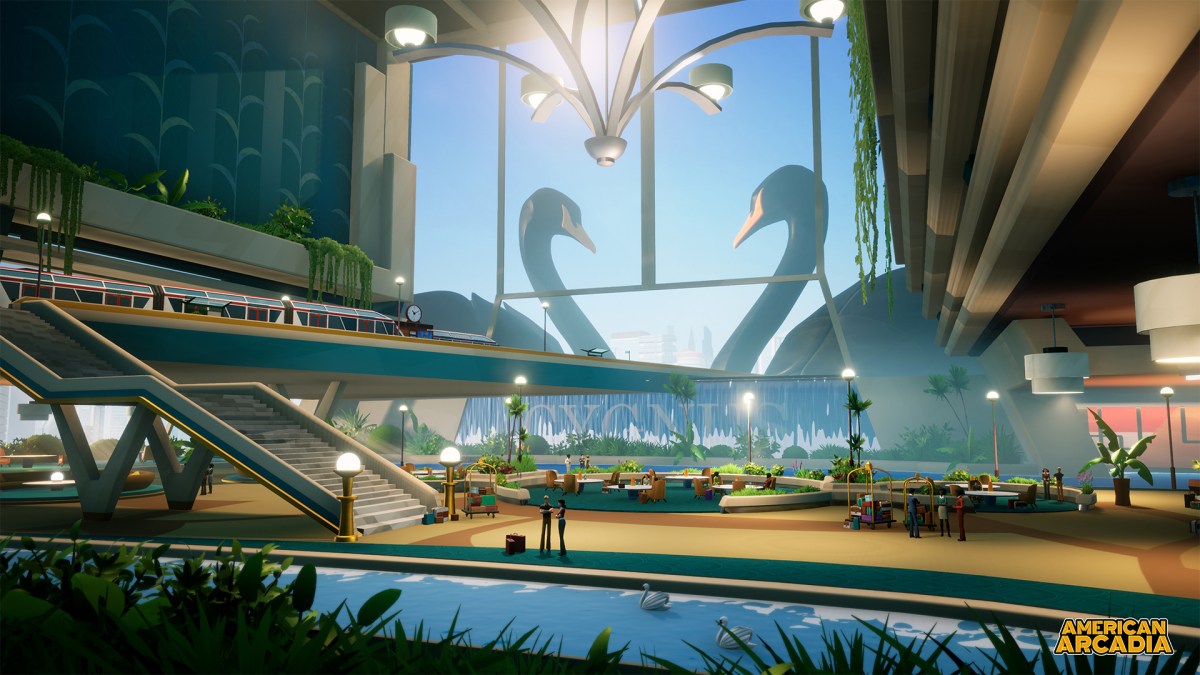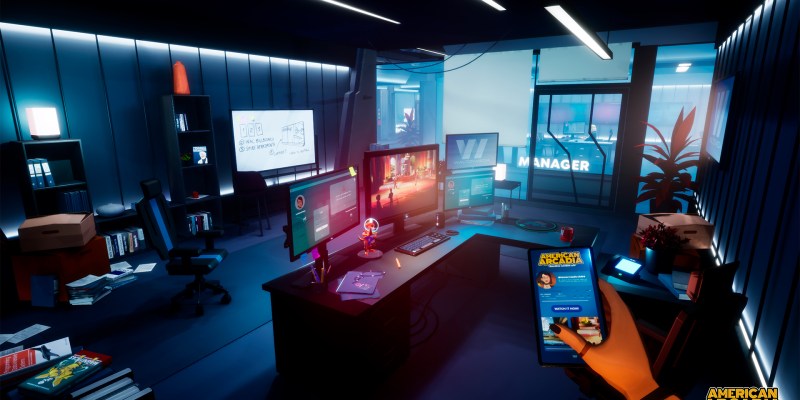From the ensemble of Game of Thrones to the genius-foil combo of Sherlock Holmes and John Watson, stories overwhelmingly tend to have more than one central character. Often, they have different talents or, at the very least, different perspectives on the events that unfold. Video games are different. Solo playable characters proliferate. When multiple are available, as in Marvel’s Avengers, Grand Theft Auto V, or Watch Dogs: Legion, they’re different by degrees, rather than offering truly unique experiences.
Enter American Arcadia. The upcoming project from Call of the Sea developer Out of the Blue Games aims to shake up the paradigm by letting you play as two very different characters in two very different kinds of gameplay. According to Out of the Blue co-founder Tatiana Delgado, the team wanted to explore this novel approach to “see the perspective of the two different worlds that we have in the game.”
We recently spoke with Delgado for an interview to learn more about what inspired the team to make such an unusual game and exactly what they’re trying to do with those two worlds in American Arcadia.
The Two Worlds of American Arcadia
The “real” world of American Arcadia is set in an alternative version of 2023. Delgado likens the team’s imagining to that of Black Mirror, “where it’s like now but a bit more dark and grim. Where technology is kind of realistic, but it’s a bit more futuristic than what we have nowadays.” Tipping that premise from dark to dystopian is the existence of the second world, Arcadia.
It’s a kitsch “city of the future,” imagined through 1970s retrofuturism. Or, at least, it was once upon a time. Like Rapture in BioShock, “it was originally created as a city for science, so people could live there in like a community of the future, for scientists and people who were investigating things,” explained Delgado. However, when the founder died, the city passed into the hands of an unscrupulous corporation that saw endless potential for profit. It turned Arcadia into the biggest TV set in history; the people who lived there became generations of unwitting stars in an endless reality series.
One of those people is Trevor. He’s an ordinary guy, as Delgado explained: “He’s not interesting. He doesn’t do things that could be good TV material, like being aggressive in discussions or passionate. He’s just happy doing his normal things.” That’s fine, but it’s not enough for a world driven by audience metrics. The producers have decided Trevor’s not popular enough. And because of that, he has to die. However, an idealistic member of the production, Angela, informs Trevor of his planned fate, prompting a quest to escape Arcadia.

Trevor’s journey takes the form of a 2.5D sidescroller with platforming, which will be a sharp break for anyone familiar with Call of the Sea. But you won’t only be playing as Trevor. And that has been one of the most difficult parts of the development process so far, as the team has had to risk “the production cost that is making two games in one.” That second game casts you as Angela for slower-paced first-person segments. These will focus on the story, so even though some puzzles will be present, they will be more accessible than those in Call of the Sea.
The office setting ensures American Arcadia will be a less lonesome experience, as Angela will have a range of people to chat with. Her most common interlocutor, though, will be Trevor. “We have a theme about cooperation and friendship, and we thought it could be really nice to have those two different characters talk all the time,” said Delgado, and that helps to emphasize the dichotomies at the heart of the game: “We have the utopia of living inside the TV show but also the perspective of how the real world is and how the people outside see the show.”
Escaping the System
Trevor’s journey, then, sees him moving from lies to truth as he breaks free of the system that has been constructed around him. Many commentators have compared American Arcadia to The Truman Show. That film was an inspiration, but Delgado also cites Logan’s Run, The Island, and The Fugitive as touchpoints for the underlying question of the game’s structure: “How cool could it be to play that escape, and also how cool would it be to play the person that helps the person escape?”

That theme of slipping the shackles of expectation reverberates through the game. Beyond the plot, Out of the Blue has also taken inspiration from film, documentaries, and reality TV for the storytelling. “We’re telling the story in this game very differently from other games,” explained Delgado. It’s evident in the different perspectives, but it goes beyond that through narrative cutaways, where the action will pause for interview-styled segments with characters explaining things to a camera.
The idea extends also to the subtext. Out of the Blue envisions Arcadia as an allegory for contemporary culture. Its skewering of reality TV is self-evident, and Delgado sees the “manipulation” of narratives in reality TV as extending also to social media. “Not everything you see there is real, and also social media, I think, is motivating people to be very individualistic,” she said. “We want to reflect about the shallowness of life on social media. Like, when you live your life for others in what seems (like) your life but it’s actually not, you are not really happy.”
That idea will manifest most powerfully through Trevor, as he learns about the lie of his whole life. Nonetheless, Angela, even with her “perfect perception of the real world,” will also suffer; Delgado characterizes Angela as “very idealistic. She wants to save the world and free Trevor.” However, she’s faced with a monolithic corporation creating the most popular product on the planet, and she’s going to realize she’s just a tiny cog in that machine.

Both characters, then, are scratching away at the surface of what they think they know, and it’s in that idea that American Arcadia is unexpectedly most similar to Call of the Sea. That earlier game followed Nora as she peeled away layers of family history and Lovecraftian mystery. And that’s intentional. “We really like when we tell a story to put something that is very beautiful,” said Delgado. “Like in the island (from Call of the Sea), everything is nice and shiny. And then you start seeing that behind that not everything is true… That’s what we wanted to do again in American Arcadia.”
American Arcadia is planned to launch on PC and unspecified consoles at a date to be announced.
